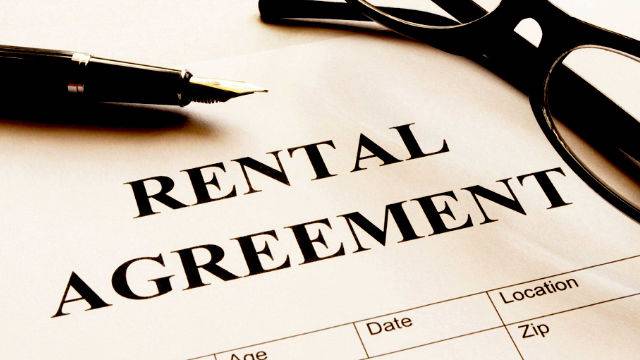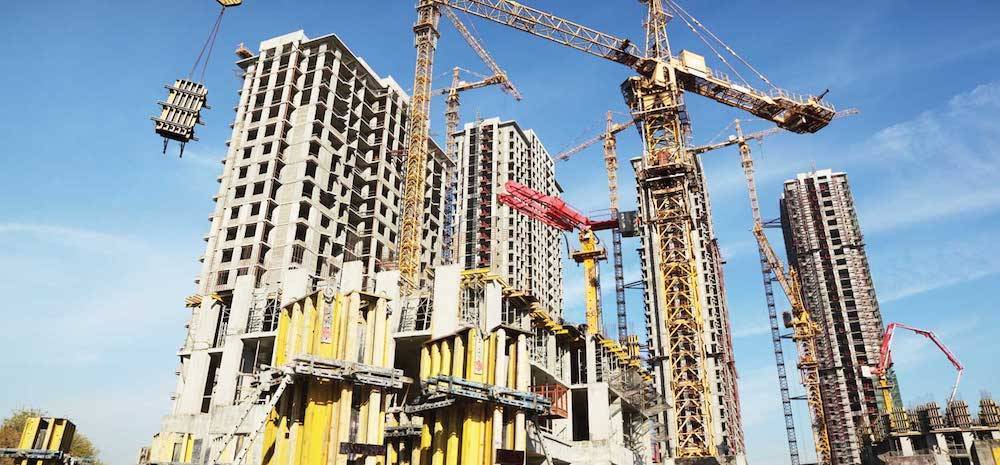Landlord Legal Aspects – Tenant Disputes in Commercial Realty
Increasing unemployment levels, stock market crashes, and supply chain disruptions are only some of the effects of the COVID-19 outbreak. Many more underlying repercussions shall unfold over time.
With most Indian businesses adversely affected owing to the nationwide lockdown implemented by the Central Government to curb the spread of the virus, the Commercial Real Estate Sector (CRE) has been hit hard. Almost all of the CRE segments, namely: hospitality, office, restaurant, entertainment, and construction, have been impacted.
The Centre and the State governments have been ordering businesses to close commercial establishments such as offices and shops and advising the same to work from home (if possible), barring those in essential services. The result has been that a significant number of commercial tenants have been curbing operations, cutting jobs amid sharply declining revenues.
Even the so-called essential businesses have been experiencing a decline in their income. Where commercial real estate may see a drop, retail companies may find that their regular flow of customers has reduced substantially, thereby placing a period on the rental incomes of commercial landlords.
Force Majeure
Since the Central Government has not provided any clarity over rental obligations under commercial lease agreements, such establishments have been left struggling with negligible sales numbers, in addition to rental and salary obligations.
Amidst this outbreak, the much-forgotten ‘Force Majeure’ provision in leases and contracts has gained attention and traction. The commercial tenants could invoke the said provision to get relief from needing to clear rental payments during an event that is beyond the control of parties (as per Force majeure).
Nevertheless, Force Majeure events are not laid out exhaustively under the law, and the applicability of this clause depends mainly on the language of the rental agreement and interpretation by the courts. Hence, both parties have to re-negotiate agreement terms so as to get some relief during this time.
Doctrine of Frustration
An important question that could arise is whether a lessee can invoke the Doctrine of Frustration in the absence of the Force Majeure provision for non-payment of lease rent. Usually, the same is invoked during circumstances where the purpose of the concerned contract is held as frustrated under Section 56 of the Indian Contract Act.
Having said that, the Supreme Court (SC) in the Raja Dhruv Dev Chand vs Raja Harmohinder Singh, observed, “Authorities in Indian courts, have generally taken the view that Section 56 of the Contract Act is not applicable when the rights and obligations of the parties arise under a transfer of property under a lease.’’
Therefore, it is improbable that a lessee can claim frustration of contract in the absence of a Force Majeure provision under a lease agreement, and seek a waiver of the rental as a result of a Force Majeure event.
Nonetheless, the majority of tenancy agreements do not contain the Force Majeure clause, and cannot invoke the doctrine of frustration. Thus, unless ordinances appropriately back announcements, the uncertainty of its enforceability continues.
Maintenance Cost of Common Areas
Commercial landlords responsible for common parts (Common Area Maintenance) are providing more frequent and thorough cleansing of those common parts, particularly the frequently touched surfaces (e.g. door handles, elevator buttons, and toilets). However, there is no legal obligation on them to provide such services to prevent the spread of the virus.
Supplying these extra cleaning services will have cost implications, and commercial landlords should check the service-charge provisions in their leases to ensure such charges are recoverable. Broader regulatory issues regarding any steps taken (such as cleaning or surface disinfection) by a commercial landlord or its managing agents should also be addressed.
For example, municipal permission for commercial premises will often contain conditions that restrict or limit the hours within which such operations may take place. This could catch enhanced or additional cleaning activities, for example, if additional garbage clearance is required or additional traffic and noise is caused.
There could be a possible solution to save commercial leases. The same can lie in one of the most important statutes.
Transfer of Property Act
Section 105 of the Transfer of Property Act (TPA) defines a “lease”. This recognizes certain situations under which unforeseen circumstances may give rise to a justified ground to treat the lease as terminated. Section 108(B)(e) shows that three criteria must be satisfied before any benefit can be derived:
(I) the existence of an ‘irresistible force’;
(II) the property becomes substantially and permanently unfit for the use for which it was let; and
(III) the lessor must be informed of the lessee’s decision to render the lease deed void.
Hence, under the same Section, it is as equally essential to establish that the novel Coronavirus rendered the property permanently unfit for the purpose, for which the property was leased out, as it is to determine that the novel Coronavirus is in itself, an occurrence of ‘irresistible force’.
In this context, it becomes crucial to examine whether the said virus and the nationwide lockdown can be termed as an ‘irresistible force’ for Section 108(B)(e). Black’s Law Dictionary has defined Force Majeure, among other things, as an “irresistible or superior force” (4th ed. 1972).
While the dictionary’s authors have not encountered a judicial precedent, where the definition of ‘irresistible force’ has been specifically settled, obiter stipulates that the Courts have not made distinctions between Force Majeure and ‘irresistible force’. Whether the novel Coronavirus itself would qualify as an event under Force Majeure is a question of fact, and is most probably to get settled, on a case-to-case basis.
Payment obligations and unforeseen circumstances
An evident and significant concern is whether the payment obligations under the lease remain active despite the lessee not having access to the property. The question as to the presence of COVID-19 and not having access to the property is a question of fact for the courts to determine on a case-to-case basis. However, the Courts have deemed that the lessee is in possession of the property and has access to the same unless a notice under Section 108(B)(e) of the TPA is sent to the lessor.
Considerations for a Lessee
The relationship between the lessee and the lessor is governed primarily by the terms of the lease deed. In case, the lease deed does not contain a Force Majeure provision; the resort has to be had to the Section mentioned above, of the TPA. First, the lessee has to satisfy himself that the event is one of ‘irresistible force’, and also has to communicate the same to the lessor, to avoid making rental payments, in the future.
This analysis is made complicated, owing to two essential considerations. First, a lessee can only seek the benefit of Section 108(B)(e) if the lease in question is duly registered under the Registration Act, 1908. In the absence of registration, a lessee must examine their protection under common law for a month-to-month tenancy.
Second, the majority of commercial lease agreements include an arbitration clause, as the means for the resolution of a dispute. The arbitrability of disputes under a lease deed is, in the current scenario, awaiting a decision by the Supreme Court.
In Himangni Enterprises vs Kamaljeet Singh Ahluwalia (2017), the Court held that the disputes were non-arbitrable under TPA. Although, a doubt has been cast upon the accuracy of this view in Vidya Drolia vs Durga Trading Corporation (2019), and a reference to the three-judge bench is still pending.
Therefore, given the vast amount of open-ended questions, it would be interesting to witness how courts would react to the impact that the novel Coronavirus has had on a variety of economic relationships.
The Indian residential sector has been grappling with subdued demand for the past few years. In an attempt to stay afloat amidst changing dynamics, developers tried to pull all levers such as restricting supply, focusing on execution of existing supply, reducing unit sizes, and developing affordable housing projects.
However, the liquidity crisis initiated by the Infrastructure Leasing and Financial Services (IL and FS) fiasco, and the resultant fallouts of multiple financial institutions further impacted the housing sector. In complete view of these changes, Private Equity (PE) players had shifted their focus primarily toward commercial projects.
As per an industry research report, the share of PE investments made in the residential sector declined from 53 percent in 2015 to a negligible 8 percent by 2019. COVID-19 has severely hurt the residential real estate business, and the sector has come to a standstill. With site visits coming to a grinding halt, the evaluations, paperwork, and deal closures have also been reduced.
The early indicators show that we shall probably face a difficult time during the upcoming few quarters, and the sector’s recovery has been pushed further away, by at least a couple of years.
The tenant-landlord relationship, which is customarily strained, has become distressed further due to the lack of clarity in the announcements of relief measures made by the Central and State governments.
Until the same is made clear, Indians will keep depending on legislations that heavily favor tenants over landlords, during a rental dispute. Thus, landlords would be kept grappling to survive through the current crisis.
During the interim, as both sides wait for a clarification from the government, it would be prudent to facilitate the shared objective of contractual performance, via collaboration and the provision of a win-win solution to the same, till the return of normalcy.
Tags: supply chain disruptions, commercial real estate sector, tenant disputes, supply disruption, landlord tenant dispute, landlord and tenant disputes, landlord dispute, commercial tenant disputes










